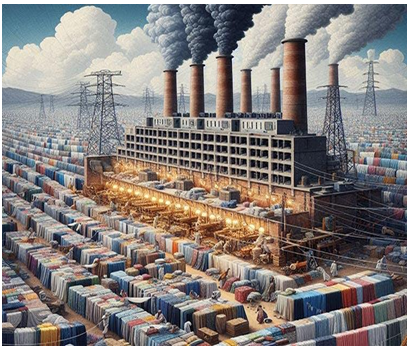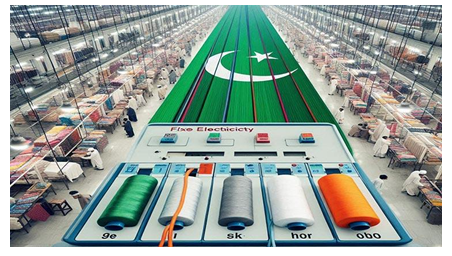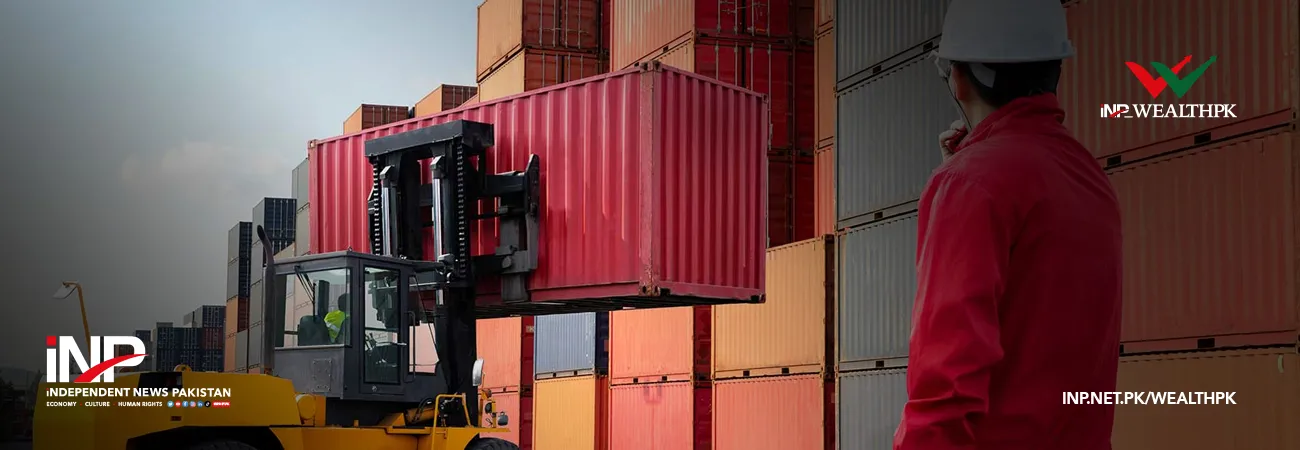INP-WealthPk
Muhammad Saleem

The textile exporters are facing a critical situation due to the surge in electricity, gas and raw material prices. The rising costs threaten factory closures, which could ultimately trigger a wave of unprecedented unemployment. Sharing his grievances with WealthPK, Zia Ahmed, a textile exporter, said the fluctuating electricity prices were impacting the textile sector and the allied business manifold. Owing to the politico-economic uncertainty, the foreign buyers are reluctant to place new orders with the Pakistani exporters. "For the fixed electricity unit price to be effective for the textile sector, the government would need to reduce the current rate and steady it for a specific period, ideally a minimum of five years," he suggested. He said the textile sector of Pakistan was shouldering the highest energy prices compared to the regional countries like India and Bangladesh.
Owing to the unpredictable energy price situation, the exporters cannot devise production planning. Consequently, the scenario creates multiple hurdles for exporters to compete with regional and global players. The business rivals of Pakistan are enjoying more stable energy costs, he added. Hammad Ahmed, a human rights activist, opposes the idea of providing preferential treatment to the textile sector. He questions why the government is investing public funds into nurturing the textile industry. Talking to WealthPK, he said the millers were getting rich with each passing day, while the common man was struggling for survival. He argued that a fixed electricity unit price for the industry would encourage misuse and theft. This, in turn, would have a negative impact on the energy sector, which is already facing a circular debt issue, he added.
"It's unwise to give special privileges to the textile exporters at the expense of the general public. This situation will irk them, leading to protest demonstrations," he cautioned. Zia Ahmed also questioned how the government would ensure subsidies for the textile sector in the current circumstances when the IMF was monitoring every sector. He said heavy loans were being obtained from the IMF for survival and this situation will not resolve the country's issues. However, he said, it's evident that for long-term success, the government had to ensure the supply of smooth and affordable energy for the industry. Without industrialization, the country cannot battle inflation and unemployment. There is a need for a multi-pronged approach to resolve energy-related issues and stabilize it for the textile sector.

Muhammad Ali, another textile exporter, said the energy price fluctuations translate to multiple challenges for the textile sector, which was already under tremendous pressure because of political uncertainty. "We have been struggling to sustain our businesses for years, but the policymakers are doing nothing to alleviate our issues. Instead, they have imposed heavy taxes. The volatile electricity prices render the exporters helpless. Fixed prices will work for the sector, if the per-unit rate remains low like in the regional countries," he said. "Our business rivals are investing in research and development, but we are primarily investing in energy-saving technologies only to avoid a power crisis. We are playing a risky game by spending on energy-saving machinery instead of exploring new markets. Consequently, progress stagnates, the production is slashed and the number of unemployed workers rises.
How can we compete globally and adopt modernization under such circumstances?" he asked. Ahmed Rashid, a cloth trader, asked how the local markets of Faisalabad could work when the factory owners won't be ready to run their units. He said the textile sector breathed relief when the PTI-led government focused on industrialization. The current government has only focused on tax collection, which is not possible without industrialization, jobs, and business development, he opined. He supported fixed energy prices for the textile sector, arguing that it would provide the much-needed predictability. With stable energy costs, the exporters can efficiently plan production cycles, explore new markets, invest in new machinery with confidence, and negotiate longer-term export contracts.
Credit: INP-WealthPk




